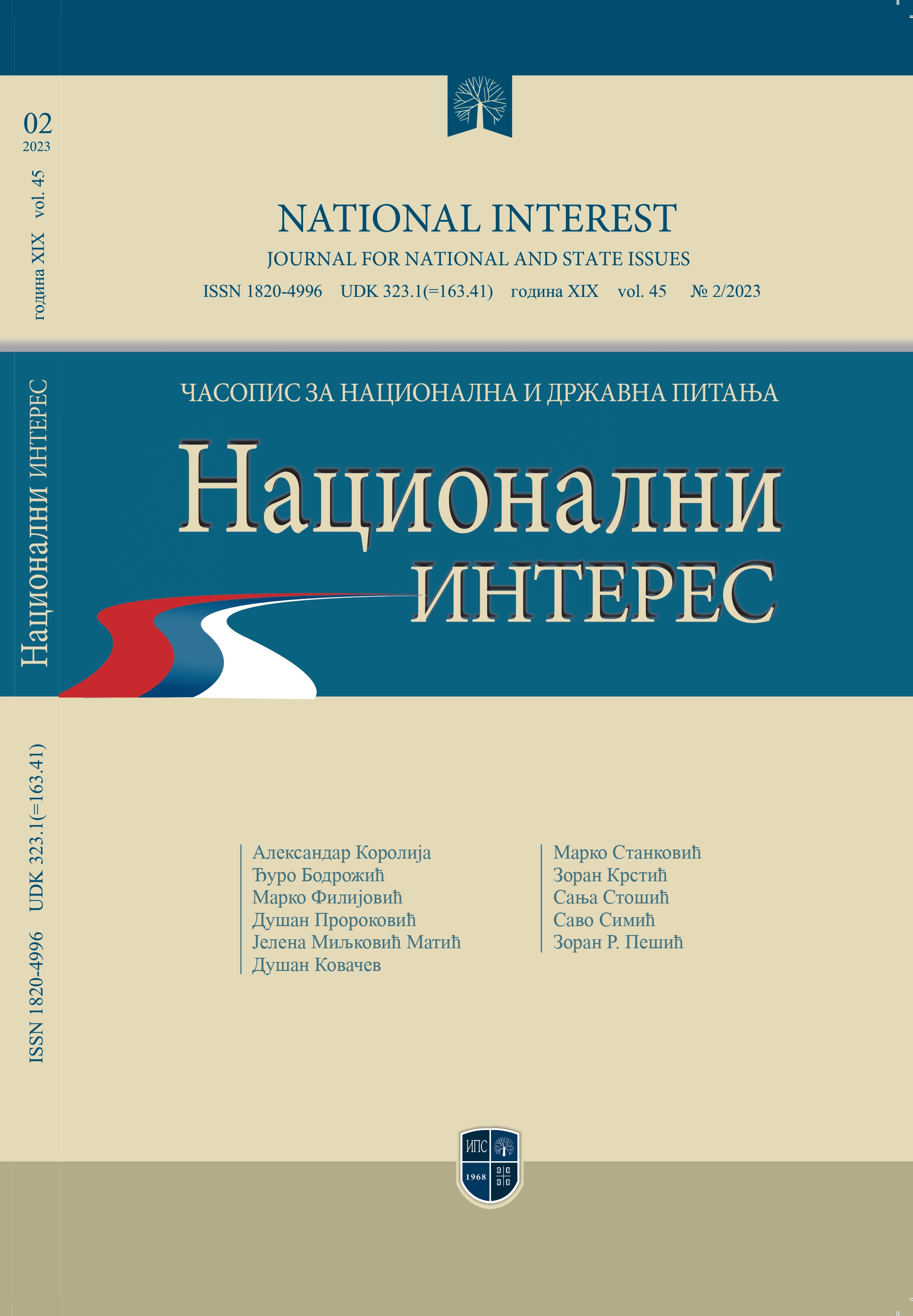THE THESIS THAT THE SERBS ARE INDIGENOUS TO THE BALKANS IS NOT INCOMPATIBLE WITH CHRISTIANITY
Abstract
In this paper, we counter a set of interconnected claims: that the thesis stating that the Serbs are indigenous to the Balkans is incompatible with Christianity, that it is a source and a carrier of heresy and paganism, and that it, as such, represents a threat to the national security of the Serbian people, because it attacks the Christian foundation of the Serbian identity. These claims were laid out by two theologians, who positioned themselves on the side of the mainstream of the Serbian humanities in their fight against the autochthonic thesis.
We counter this complex claims as logically incorrect, unfounded generalisation, built upon cherry-picked examples, which do not, in any way, represent all of the advocates of the autochthonic thesis.
We counter the claim by mentioning a counter-example, which shows that the autochthonic thesis is not incompatible with Christianity and is not necessarily associated with heresy and paganism. After briefly discussing the Christian belief of Miloš S. Milojević, the most well-known autochthonist, we gave more attention to discussing Vladika Nikolaj, as a representative example for our aim. As an orthodox Christian, he reached sainthood, while, at the same time trusting the sources and findings of studies springing from the autochthonic thesis.
We conclude that there is no basis for the position that the autochthonic thesis is an enemy of Christianity, and consequently the Serbian national identity. Spoiling of the Christian basis of Serbian identity comes from another side, and not from the autochthonic thesis and studies stemming from it, whether professional or amateur.
References
Ава Јустин Нови (Ћелијски). 2021. Сабране беседе. Софиографска духовна школа.
Арсенијевић, свештеник Арсеније. 2018. Свет првих људи. Београд : Хришћанско просветно друштво Пирг при храму Вазнесења Господњег у Београду.
Бојанић, Ђорђе. 2021. „Др Драгољуб Петровић о СРПСКОЈ ИСТОРИЈИ И ЈЕЗИКУ.” Српска историја. 30. јул 2023. https://www.srpskaistorija.com/dr-dragoljub-petrovic-o-srpskoj-istoriji-i-jeziku/.
Епископ Николај. 2016а. Сабрана дела у 13 књига - Књига III. Шабац: Манастир Светог Николаја Соко.
Епископ Николај. 2016б. Сабрана дела у 13 књига - Књига V. Шабац: Манастир Светог Николаја Соко.
Епископ Николај. 2016в. Сабрана дела у 13 књига - Књига VII. Шабац: Манастир Светог Николаја Соко.
Епископ Николај. 2016г. Сабрана дела у 13 књига - Књига IX. Шабац: Манастир Светог Николаја Соко.
Епископ Николај. 2016д. Сабрана дела у 13 књига - Књига X. Шабац: Манастир Светог Николаја Соко.
Ристић, Пеђа. 2011. Истина Лепенског Вира. Београд : Пешић и синови.
Марковић, Димитрије. 2022. Сербонини сведоци: Псеудоисторичари, неопаганизам и Црква. Бајина Башта: Д. Марковић.
Мрђеновић, Немања С. 2021. „'Народ најстарији'. Осврт на квазинаучни покрет тзв. аутохтонистичке или неоромантичарске историографије код Срба”. Црквене студије, Ниш (18): 349-369.
Соларић, Павле. 2018. Римљани словенских обележја. Нови Сад: Илија Петровић.
BBC News na srpskom. 2019. „Teorije zavere: Jutjub širi verovanje da je Zemlja ravna ploča, pokazuje istraživanje”. 27. јул 2023. https://www.bbc.com/serbian/lat/svet-47278994.

